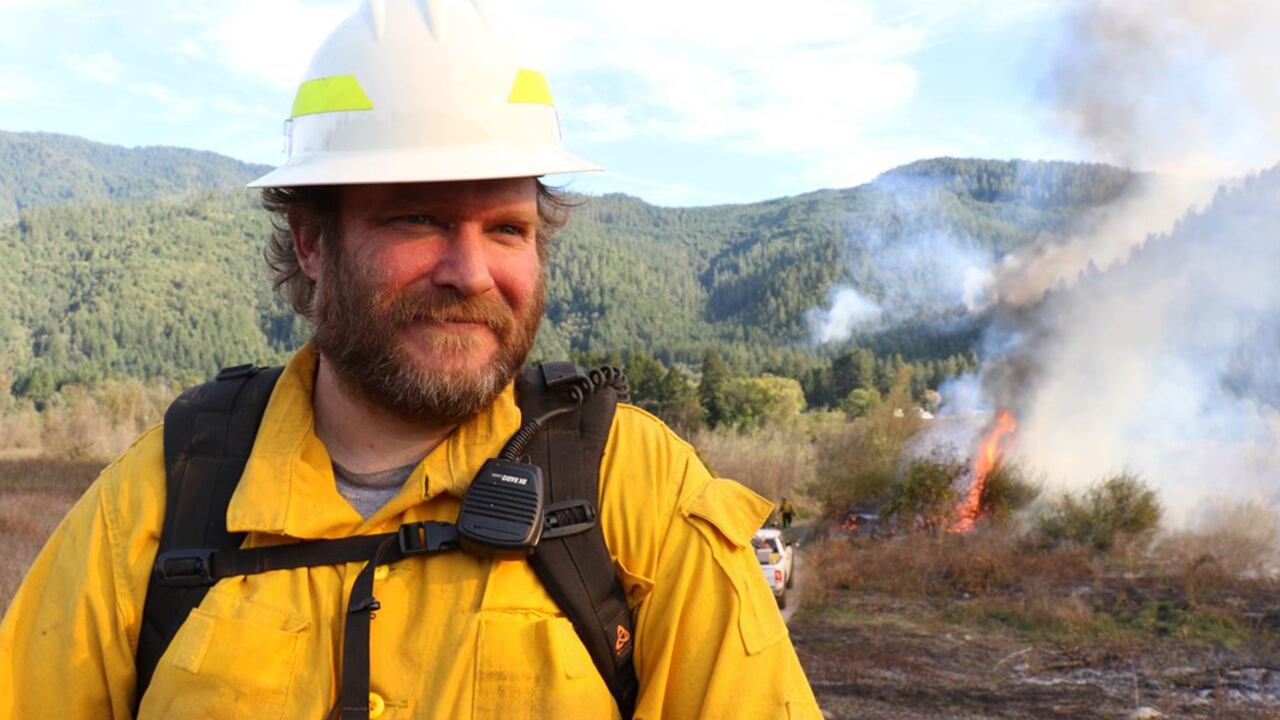A few years ago, the Karuk Tribe won a major victory that garnered national attention.
The tribe, whose ancestral lands span what's now the Oregon-California border, entered into a historic partnership with the U.S. Forest Service to conduct prescribed burns in Northern California's Six Rivers National Forest—where Merv George Jr. was forest supervisor.
After years of unsuccessfully suing the Forest Service over timber contracts, the tribe entered talks with the agency in 2013 facilitated by the Nature Conservancy. In 2016, two years into his role as forest supervisor, George signed a 10-year agreement allowing the Karuk to plan and conduct controlled burns throughout the 974,612-acre forest. This year, the tribe also began controlling some of the forest's timber contracts.
The collaboration represents a unique success for the Karuk. Attempts to replicate the agreement elsewhere, though, have been stalled by timber interests, according to Bill Tripp, deputy director of eco-revitalization for the Karuk Tribe.
The Forest Service makes money from timber sales. Each sale has a board-feet quota of timber that it's expected to produce each year. Those quotas don't distinguish between logging an old-growth forest or a highly flammable tree plantation. Critics argue that such quotas encourage the agency to sell off older, larger trees even though younger, smaller ones are more flammable and their logging would do more to prevent megafires.
"I don't think it's reasonable to expect that the Forest Service is going to take on the role of carrying out prescribed burning," Tripp says. "I think that's going to have to be handled separately. We're just not overcoming that obstacle."
Around the same time the Karuk began negotiating for Six Rivers, Tripp submitted a similar proposal for the timber-rich Klamath National Forest. It never went anywhere.
"Our shared values from our side of this whole thing is just being left as the last thing to do," he says. "If you've got to get more timber to get more budget, that's where your focus goes. That is a product of systemic racism, in our mind."
For things to really change, Tripp says, tribes need more autonomy—and more funding.
The Karuk recently started the Endowment for Eco-Cultural Revitalization Fund, hoping to create a $200 million endowment to back the tribe's land management works.
"If the tribes had a couple million dollars a year to say, 'Hey, these are our priorities, this is where we want to put our money,'" Tripp says, "then other folks like the Forest Service may be more willing to engage the dialogue."

